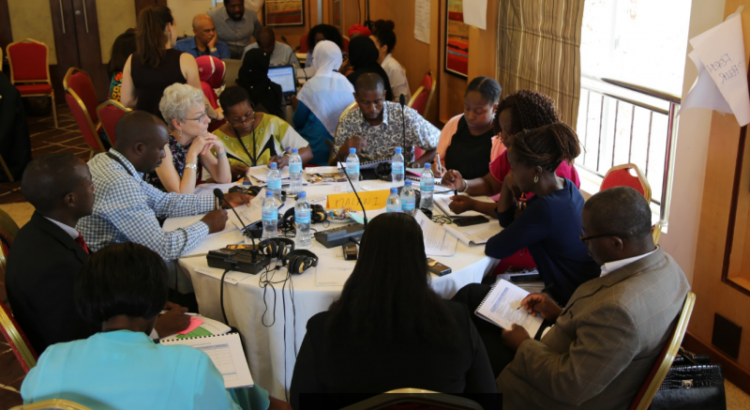Africa/Tanzania/PrensaGPE
Resumen: Alrededor de 40 participantes de Malawi, Mozambique, Tanzania continental, Uganda, Zambia y Zanzíbar se reunieron en Dar Es Salaam esta semana para poner a prueba el uso de la recientemente publicación de GPE / UNGEI denominada «Orientación para elaborar planes del sector de la educación con perspectiva de género». El taller ofreció la primera oportunidad de utilizar la guía que ofrece un enfoque paso a paso para ayudar a introducir la dimensión de género en los planes del sector educativo. Según la UNESCO GemR , más de un tercio de los países de todo el mundo están trabajando para alcanzar la paridad de género en la enseñanza primaria. A nivel mundial, se espera que 15 millones de niñas actualmente fuera de la escuela no volver a inscribirse.
About 40 participants from Malawi, Mozambique, Tanzania Mainland, Uganda, Zambia and Zanzibar gathered in Dar Es Salaam this week to pilot the use of the recently released GPE/UNGEI Guidance for developing gender-responsive education sector plans.
The workshop offered the first opportunity to use the guidance, which offers a step-by-step approach to help introduce gender dimensions in sector plans. According to UNESCO GEMR, more than one-third of countries around the world are still to achieve gender parity in primary education. Worldwide, 15 million girls currently out of school are expected never to enroll.
Facilitators guided participants in understanding the key terminology about gender, recognizing what constitutes an enabling environment, collecting and analyzing the relevant data, and defining goals, strategies and activities, and monitoring and evaluation frameworks to ensure that all girls and boys can equally participate and succeed in the education system.
The participants included representatives from education, health and gender-focused ministries, development partners, and civil society organizations.
All participating countries have already made progress in tackling gender inequities in education, whether through passing new laws, adopting policies, making reforms, or training and deploying teachers. The workshop has allowed participants to access innovative tools, which they will further use in their own countries’ local education groups to continue to advocate for gender equality in education.
It’s an essential task, because achieving SDG 4 depends on it.
Fuente: http://www.globalpartnership.org/blog/tanzania-decision-makers-exchange-promoting-greater-gender-equality-education







 Users Today : 29
Users Today : 29 Total Users : 35460160
Total Users : 35460160 Views Today : 43
Views Today : 43 Total views : 3418826
Total views : 3418826